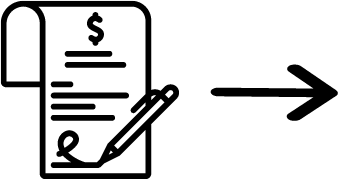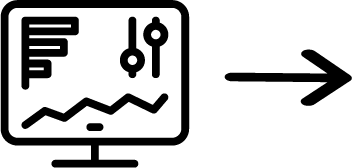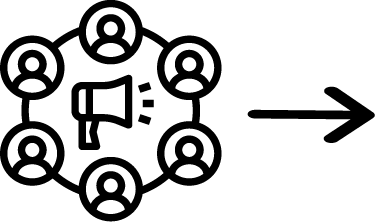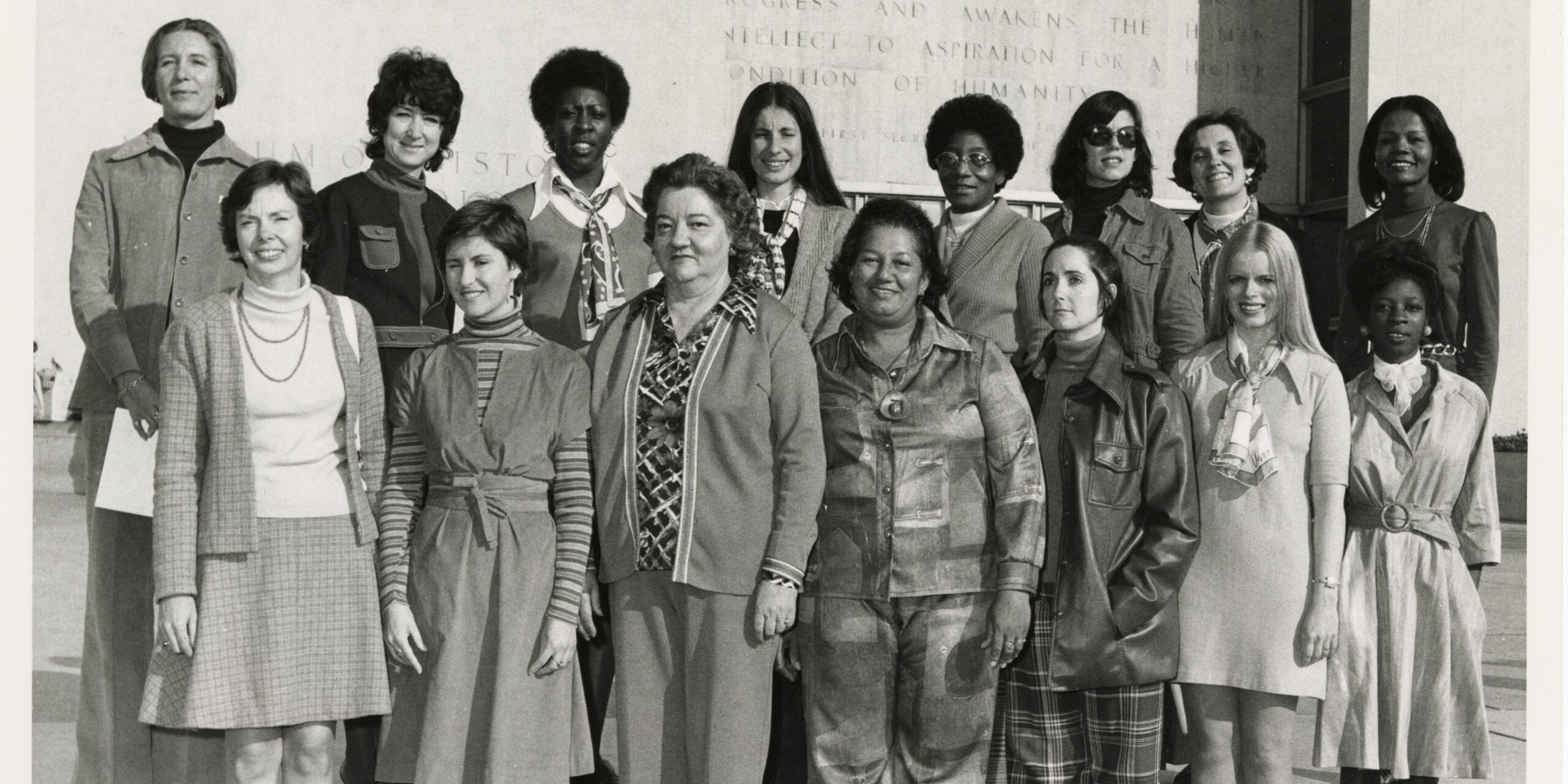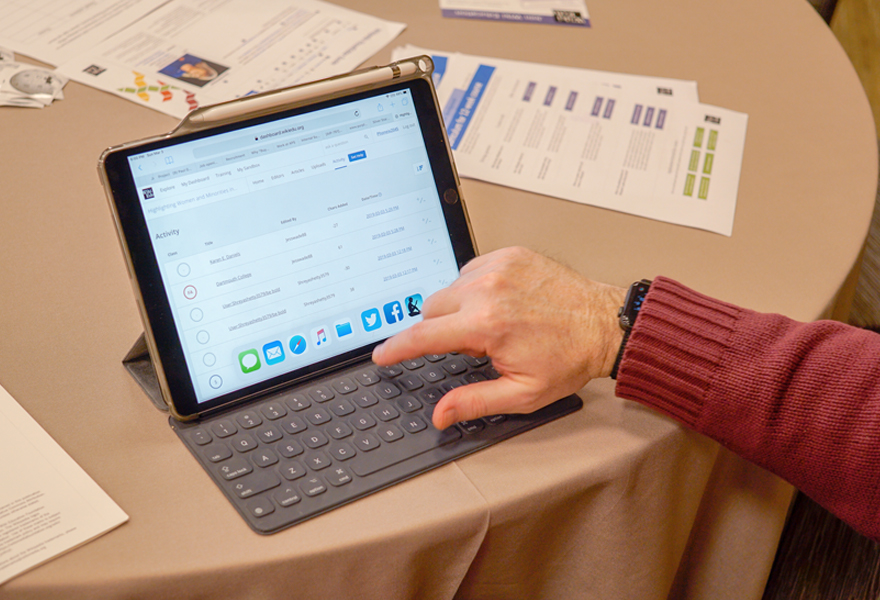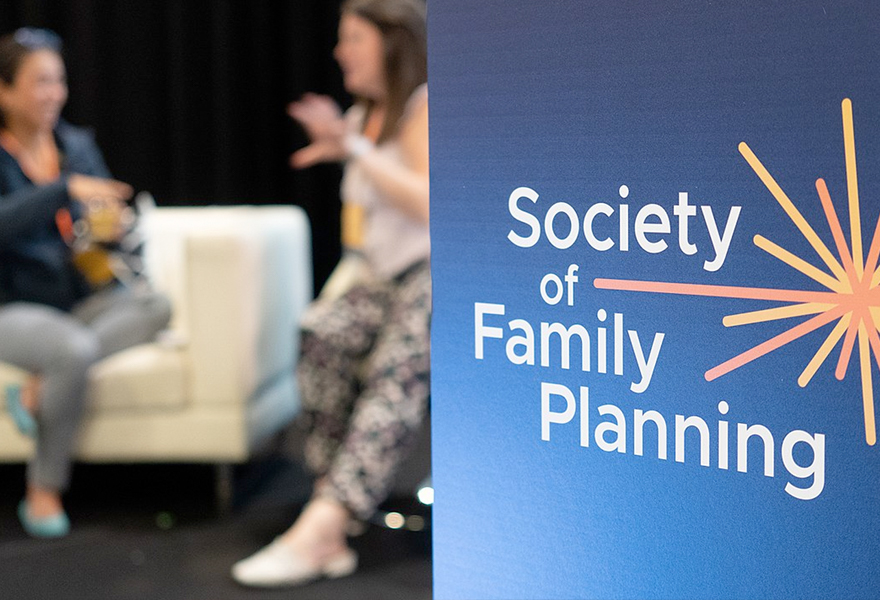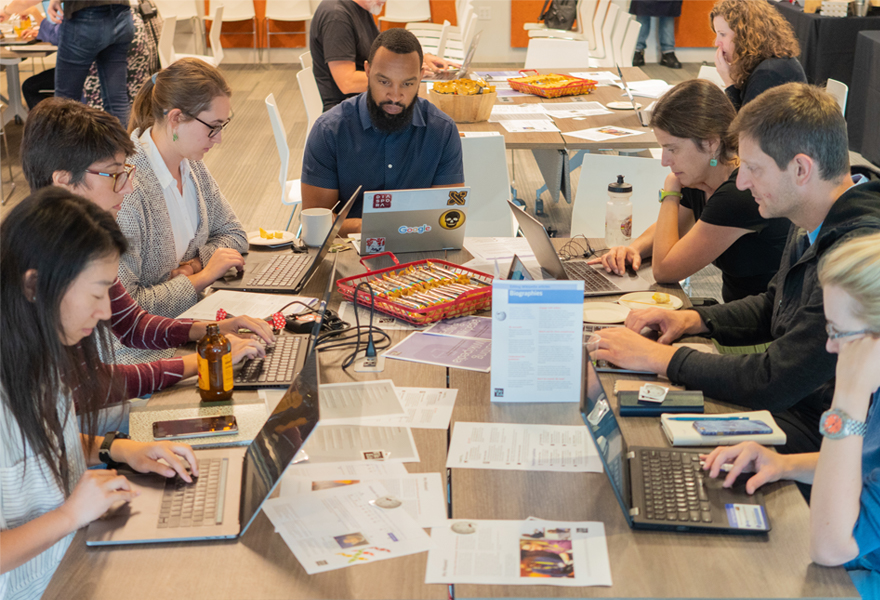How does this work?
1. Let’s chat.
Your institution curates important high-quality knowledge—in your publications, collections, or members. We believe your research and unique perspectives belong in Wikipedia, where it will play an important role in informing people making behavioral, voting, or even policy decisions. Think about your institution’s mission and current strategy. Do any of the following align with your goals?
Reach
Connect your research, collections, or data to a worldwide audience
Equity
Change the world’s perception of historical figures, better representing the diversity of your field
Impact
Influence behavior, decision-making, policy, and future scholarship
Service
Engage members, staff, or other stakeholders in a (fun!) act of public good
2. Next, we’ll collaboratively design your Wikipedia Initiative.
Now that we’ve connected to understand each other’s goals, we’ll work together to finalize the details of your custom Wikipedia Initiative. We’ll identify your target audience and narrowly define the topic of the Wikipedia pages your program participants will work to improve. As your Wikipedia Initiative consultants, we offer ideas based on Wikipedia’s content gaps and needs as well as your individual goals. Then we’ll make it happen on your behalf.
The kick-off to your Wikipedia Initiative may take the form of a 6-week online course or an in-person workshop. We’re flexible, so long as we can bring better knowledge to the world through this project. Whichever experience we land on together, we offer a Dashboard where you can follow the progress.
3. Then, Wiki Education takes it from there.
We’re experts on facilitating Initiatives that help people share their knowledge through Wikipedia. We’ll execute your Wikipedia Initiative, and you and your team can be as involved as you’d like. Here’s what the process might look like:
When subject-matter experts share their knowledge through Wikipedia and Wikidata:
